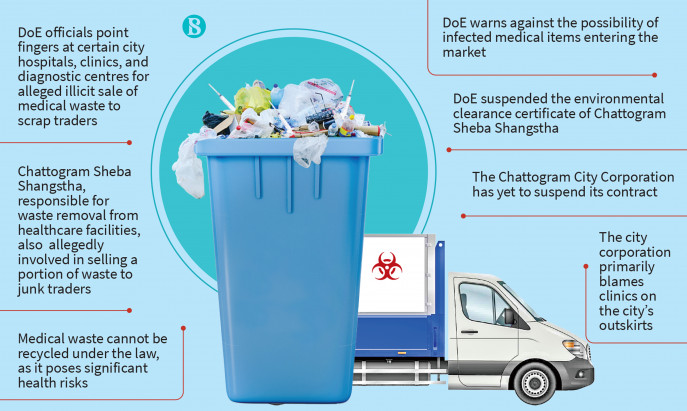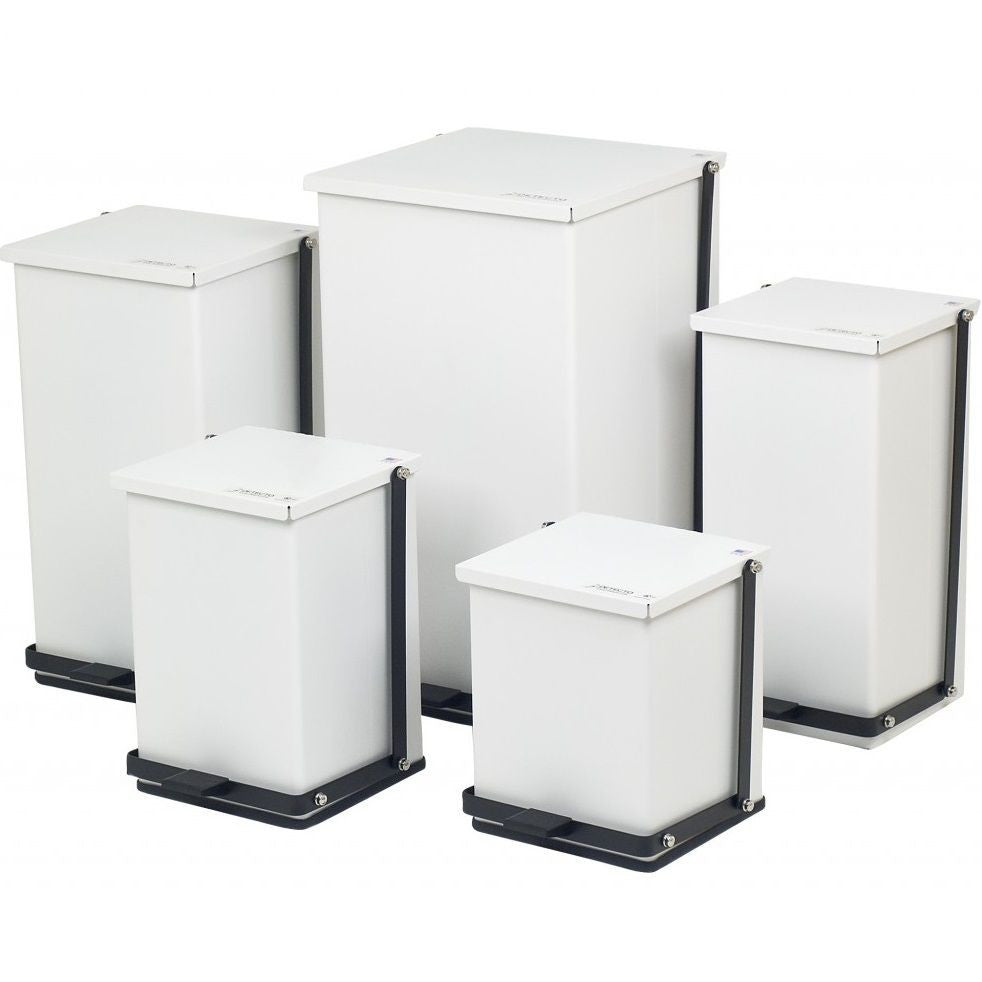Guardians of Tidiness: Citizen Medical Waste Removal Service for Your Comfort
Wiki Article
Keep Ahead of Rules: Expert Recommendations on Medical Waste Disposal
In a globe where the healthcare industry is regularly advancing, it is essential for clinical centers to stay in advance of policies when it comes to the proper disposal of clinical waste. From comprehending the different groups of medical waste to implementing the appropriate collection and partition methods, this conversation will provide valuable understandings and actionable ideas to aid centers stay ahead of guidelines in the ever-changing landscape of medical waste disposal.Comprehending Medical Waste Categories
Comprehending medical waste classifications is important for correct disposal and management in medical care facilities. Clinical waste refers to any kind of waste produced by medical care activities that might position a hazard to public health or the setting. It is vital to categorize medical waste properly to ensure its secure handling, disposal, transport, and treatment.There are a number of categories of clinical waste that healthcare centers need to be aware of. The most usual categories consist of transmittable waste, pathological waste, sharps waste, pharmaceutical waste, and chemical waste. Each classification has specific guidelines and laws for its appropriate administration and disposal.
Pathological waste refers to human tissues, organs, or body components that call for unique handling and disposal. Drug waste makes up ended, unused, or contaminated drugs that need careful handling and disposal.
Staying Up-To-Date With Regulatory Adjustments
Remaining existing with regulatory changes is vital for healthcare facilities to make sure conformity and correct monitoring of clinical waste disposal. medical waste removal near me. With regulations regularly evolving, it is vital for health care facilities to stay up-to-date to stay clear of fines, penalties, and prospective damage to the atmosphere and public health and wellnessTo stay in advance of regulatory changes, medical care facilities should develop a system for tracking and monitoring updates. This can be done by registering for regulative e-newsletters, going to workshops and meetings, and actively taking part in sector associations. In addition, centers must designate a team member or group in charge of remaining informed and disseminating information to pertinent stakeholders.
Routine interaction with regulative firms is also vital. Healthcare centers need to establish partnerships with local, state, and federal firms to ensure they know any kind of changes in laws that may affect their waste monitoring methods. This can be done via regular conferences, participation in public remark periods, and aggressive engagement with regulative companies.
In addition, health care facilities need to think about partnering with waste monitoring business that concentrate on medical garbage disposal (medical waste disposal services with WasteX). These firms are frequently skilled in the most recent regulations and can offer support and assistance to make certain compliance
Executing Appropriate Collection and Partition Techniques
To effectively manage medical waste disposal, medical care centers have to establish proper collection and partition methods in conformity with governing guidelines. Executing these techniques makes sure the secure handling and disposal of possibly hazardous materials, safeguards the environment, and lessens the threat of infections and injuries to health care workers and the public.
Correct collection and segregation approaches include using designated containers and identifying systems. Medical care centers should supply clearly labeled containers for different sorts of medical waste, such as sharps, transmittable waste, pharmaceutical waste, and non-hazardous waste. These containers must be color-coded and clearly significant to avoid confusion and advertise easy recognition.
Additionally, healthcare facilities should train their staff on the appropriate treatments for collecting and segregating medical waste. This consists of enlightening them on the different types of waste, the ideal containers to utilize, and the relevance of following policies and guidelines. Normal training sessions and correspondence course need to be carried out to ensure that employee continue to be current on finest techniques.
In addition, healthcare centers need to develop a system for normal collection and disposal of medical waste. This might involve partnering with licensed waste monitoring business that specialize in clinical garbage disposal. These firms will certainly guarantee that the gathered waste is transported and disposed of in compliance with regulatory needs.
Selecting the Right Disposal Approaches

Incineration is just one of one of the most common and reliable approaches for taking care of certain sorts of medical waste, such as pathological waste and sharps. It involves the regulated combustion of waste at high temperatures, decreasing it to ash. Incineration can release damaging contaminants into the air and contribute to air contamination.

Other disposal approaches include chemical therapy, microwave treatment, and landfilling. Chemical treatment includes making use of chemicals to disinfect and neutralize the waste. Microwave therapy utilizes microwave power to warm and sanitize the waste. Landfilling involves burying the waste in a designated garbage dump area (medical waste disposal services with WasteX). However, landfilling ought to be the last hope as a result of the potential article danger of contamination to dirt and groundwater.
Making Certain Conformity Via Documentation and Training
After thoroughly thinking about the ideal disposal approaches for clinical waste, medical care centers must ensure compliance with policies and reduce environmental impact by executing effective documentation and training treatments. This action is essential in maintaining a lasting and secure setting for both medical care employees and the general public.
Training is equally essential in making certain compliance with policies. Health care employees who deal with clinical waste should receive proper training hop over to these guys on waste partition, dealing with, and disposal treatments. This training needs to cover subjects such as the proper use of personal protective devices, recognition of various types of waste, and the right disposal approaches for each and every waste category. By offering detailed training, health care centers can encourage their team to make enlightened decisions and minimize the risk of incorrect waste disposal.
Conclusion
To conclude, remaining in advance of laws in medical garbage disposal is crucial for healthcare facilities. medical waste removal. Understanding the various classifications of medical waste, staying upgraded with regulative changes, implementing correct collection and partition techniques, choosing the ideal disposal approaches, and making sure compliance through documents and training are all necessary steps. By following these guidelines, healthcare companies can successfully manage and get rid of of clinical waste in a safe and liable wayFrom comprehending the different groups of medical waste to applying the appropriate collection and segregation approaches, this discussion will certainly supply important understandings and actionable pointers to help centers remain ahead of more information laws in the ever-changing landscape of medical waste disposal. - medical waste disposal services with WasteX
The most typical classifications consist of transmittable waste, pathological waste, sharps waste, pharmaceutical waste, and chemical waste. Healthcare facilities ought to supply plainly classified containers for various kinds of clinical waste, such as sharps, transmittable waste, pharmaceutical waste, and non-hazardous waste. Healthcare facilities should establish an extensive system to tape-record and track all elements of medical waste disposal, including types of waste generated, quantities, and disposal techniques utilized. Health care employees that manage clinical waste needs to obtain ideal training on waste partition, handling, and disposal procedures.
Report this wiki page